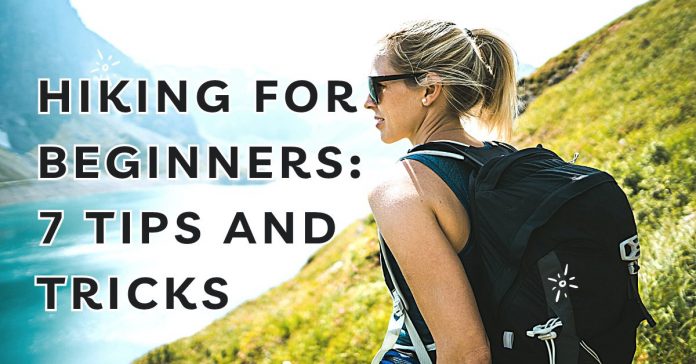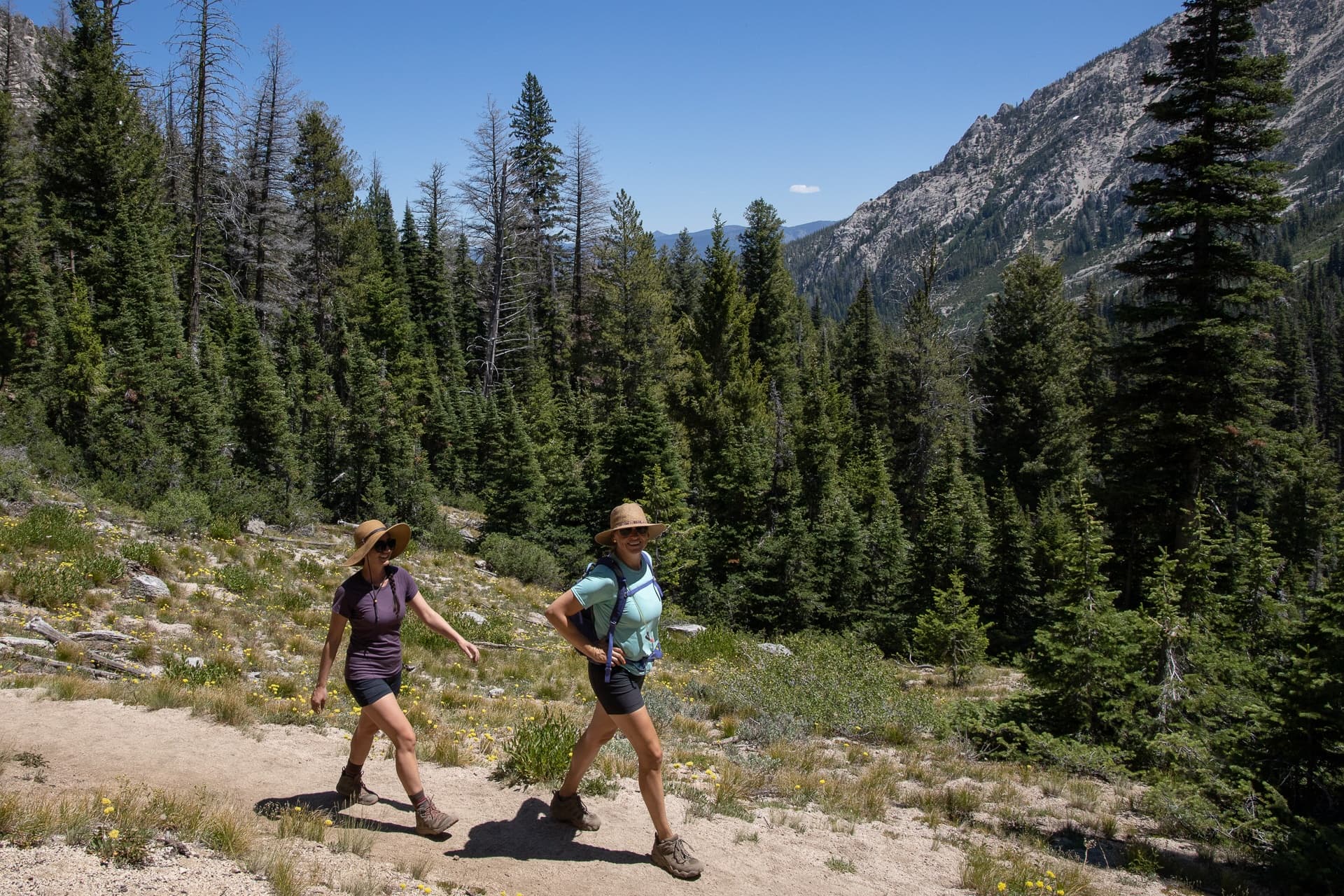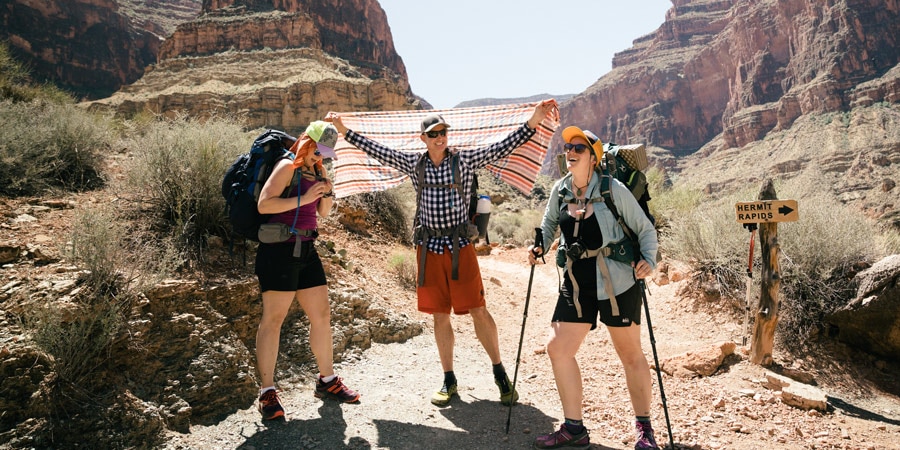Hiking offers a thrilling chance to step outside and enjoy some fresh air. It can be an excursion, a workout, or a challenging walk through nature. Preparing before hitting the trails is essential, especially for beginners.
The nitty-gritty involved may confuse a beginner on how to go about this or that. There is always worry about what to pack, the proper diet, and anxiety about the awaiting experience.
One thing to know about hiking is that it is a thrilling experience you can easily organize and enjoy, even as a beginner. Let’s check out a few tips and tricks that will make your hiking an experience to remember.
Table of Contents
7 Tips and Tricks for a Hiking Beginner
Hiking differs from the prominent examples of modern entertainment. For example, while hiking, you’ll not be able to play games in the live online casino UK, as well as watch movies and drink. By understanding it in advance, you’ll not be disappointed. Hiking for the first time is strange but quite enjoyable!
The following tricks will help you make your first excursion an all-around experience.
1. Hiking Etiquette for Beginners to Learn
As someone new to hiking, it is crucial to learn the etiquette of this outdoor activity. Understanding and following the proper hiking etiquette will ensure everyone has a safe and enjoyable time while on the trail.
Here are some of the essential hiking etiquettes for beginners to learn:
- Be aware of noise level: Hiking is an activity that is best enjoyed in nature, away in seclusion from everyday life’s hustle and bustle. When out on the trail, be aware of the noise level and keep it to a minimum. That means avoiding loud conversations, music, and other sounds that can disturb the peace of the wilderness.
- Stay on the trail: When hiking, staying on the designated trail is essential. That helps to protect the natural environment and prevents hikers from getting lost. To leave the trail for any reason, stay on marked paths and avoid trampling vegetation.
- Be considerate of other hikers: They must consider their space and needs when sharing the trail with other hikers. That means yielding to hikers going uphill, refraining from blocking the trail, and being aware of the surroundings.
- Pack out the pack in: One of the most critical hiking etiquettes is to practice Leave No Trace principles. That means packing out all trash, including food wrappers and empty water bottles. Additionally, avoid leaving behind any valuables or personal items.
2. Planning for First Hiking Trip
Planning a hiking trip can be daunting. But with some preparation, it’s possible to hit the trails confidently. Check on the following crucial things to remember when planning the first hike.
- Choose the right trail: Not all hiking trails are created equal. When planning the trip, be sure to choose a trail that is appropriate for a beginner. Look for trails that are relatively short and have gentle inclines. Use trail maps and difficulty ratings online or at the local park ranger station.
- Pack the essentials: After choosing the trail, it’s time to start packing. Bring plenty of water, snacks, and a first-aid kit. Also, pack a map of the area, even if using a GPS device. And don’t forget to dress for the weather! Layering clothing is always a good idea, as the temperature can vary significantly depending on the time of day and elevation.
- Leave no trace: It’s important to practice Leave No Trace principles regardless of the hiking excitement. That is by ensuring all trash is packed out, being careful with fires, and respecting wildlife.
3. What to Pack for the First Hiking Trip
Whether an experienced or a beginner, packing for a hiking trip can be daunting. There are so many things to consider; the weather, the terrain, comfort level, and safety. But no need to fret, we’ve got everything taken care of.
Check out this list of important stuff to have for the first hike, plus a few extras that will make the trip more enjoyable.
- Hiking boots or shoes: Ensure they’re comfortable and broken-in before hitting the trail.
- Warm layers: Even if the forecast is warm, temperatures can drop quickly in the mountains. Pack a jacket, hat, and gloves.
- Plenty of water: At least two quarts per person, per day.
- High-energy snacks: granola bars, nuts, fruit, etc.
- A map: To show direction.
- A first-aid kit: Band-aids, adhesive tape, pain relievers, etc.
- Sunscreen and sunglasses: To Protect from the sun’s harmful rays.
- Bug spray: Keep the mosquitoes and other pests at bay.
- A flashlight: For emergencies or nighttime hikes.
- A whistle: To help when lost.
- A camera: To capture all the beautiful scenery.
4. The Food to Eat Before a Hike
Whether planning a day hike or an overnight backpacking trip, the food type makes all the difference. Here are some diet tips before a hike to maximise time in the great outdoors!
- Start with a solid breakfast: Eat a hearty breakfast before hitting the trail to fuel up. Some good options include oatmeal with fruit, whole grain toast with peanut butter, or eggs and bacon.
- Pack some snacks: Pack some snacks to keep the energy up while hiking. Good options include energy bars, trail mix, fruit, or nuts.
- Bring a lunch: Carry along a lunch if the plan is to hike for more than a few hours. A sandwich or wrap with some fruit or veggies makes a tremendous hike-friendly lunch.
5. What to Wear During a Hike
Hiking is a fantastic opportunity to engage in physical exercise and get some fresh air, but it’s essential to dress appropriately for the activity.
Check out these tips to get a good idea of what to wear during a hike.
- Wear comfortable, sturdy shoes. The right hiking shoes provide good traction and support on uneven terrain. Avoid open-toed shoes or high heels.
- Put on clothing that is adjustable in response to the temperature changes. Start with a base layer of moisture-wicking material, then add a middle layer for insulation and a final outer layer that is wind- and water-resistant.
- Accessorize with a hat or sunglasses to protect the face from direct sun, and consider bringing along a bandanna or scarf in case of wind or dust.
6. Don’t Fear Getting Lost
During a hike, getting lost is always a possibility. But don’t hold back from enjoying the great outdoors! Look at the following few tips to help avoid getting lost during the hike.
Have Familiarization with the area before going. That may sound obvious, but it’s essential to research before embarking on any hike, especially if unfamiliar with the area. Read up on the trail and note any landmarks or features that will help orient.
Bring a map and compass (and know how to use them). These tools are essential for any hiker and can differentiate between getting lost and finding the way back to the trail.
7. Don’t Treat Hiking Like a Race
Hiking offers a great chance to get outdoors and enjoy the fresh air and beautiful scenery. However, do not at any moment treat hiking like a race. It’s unnecessary to hasten through the trail to the top or try to outpace other hikers.
Take time and enjoy the journey. After all, that’s what it’s all about.
INTERESTING POSTS
- What Is An SSL Certificate?[MUST READ]
- 8 Beginner Tips To Elevate Your Gaming Skills [From A Game Addict]
- Day Trading Crypto For Beginners Using Trading Bots 2022
- Cybersecurity: Addressing A Current Issue By Planning For The Future
- A Step-by-Step Guide To Website Development
- Casino Etiquette And Proper Behavior
- Is Voltage Stabilizer Required For Inverter AC?
About the Author:
Amaya Paucek is a professional with an MBA and practical experience in SEO and digital marketing. She is based in Philippines and specializes in helping businesses achieve their goals using her digital marketing skills. She is a keen observer of the ever-evolving digital landscape and looks forward to making a mark in the digital space.








